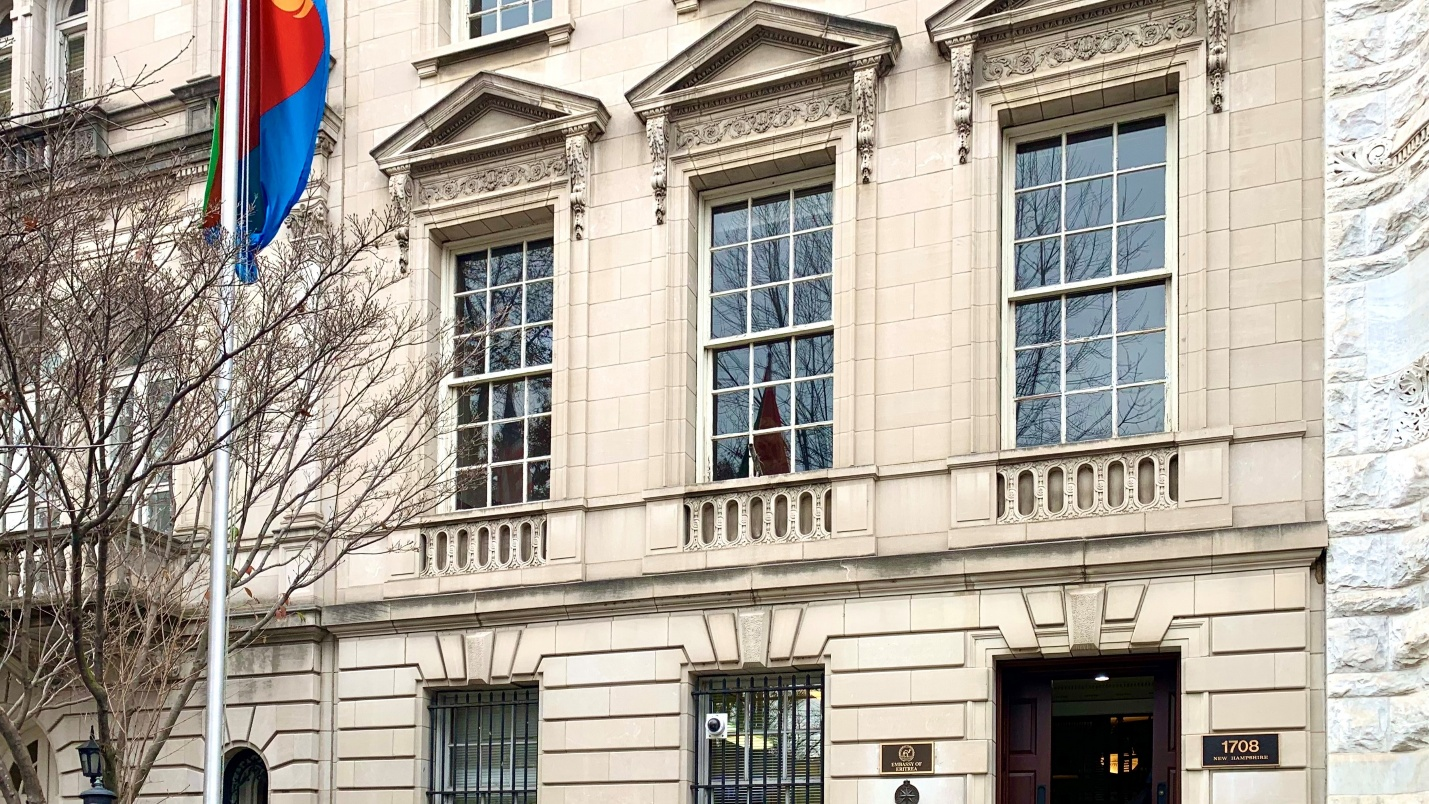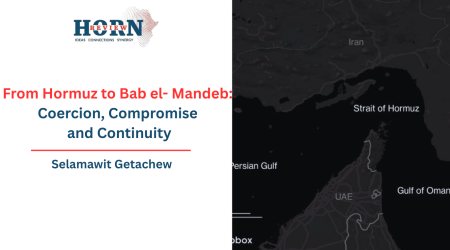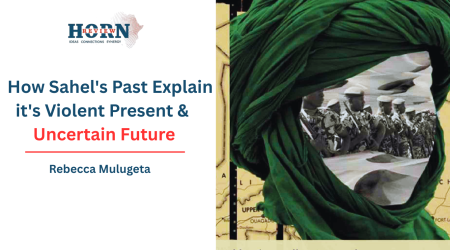
3
Sep
Eritrea And The United States: Prospects And Limits Of A Diplomatic Reset
A month ago, President Isaias Afwerki received a letter from U.S. President Donald Trump. According to Eritrea’s Information Ministry, Trump pointed to his work in “reversing the negative, harmful damage of the Biden Administration around the globe.” In late August, a representative of the Eritrean Embassy, Dawit Haile, posed for a photo with White House advisor Brandon McNamara, noting that they had “agreed on the need for a RESET, turning past disruptions into a future of dialogue, cooperation, and peace.”
In a recent interview, President Isaias spoke at length about Eritrea’s relationship with the United States. He stated that there are efforts to “lay the groundwork” to “vigorously pursue our policy of constructive engagement.”
Eritrea’s relationship with the United States has historically been difficult. The President has long attributed many of Eritrea’s challenges to external interference, claiming that several issues, including the flight of its youth, are “orchestrated, organized operations financed by the CIA.” Washington has consistently been perceived by Isaias as the primary spoiler of Asmara’s pursuit of the self-reliance doctrine. Decades of stubbornness in his part had entrenched Asmara in a rigid foreign policy, successfully resisting U.S. attempts to shape Eritrea’s politics, yet at the cost of development and economic growth. The regime’s refusal to democratize, combined with its militaristic approach to foreign policy, left Eritrea isolated and side-lined.
Isaias had hopes for a recalibration under Trump, though the first term did not yield significant outcomes.
At the same time, the shift toward a multipolar world is welcomed in Asmara. For Isaias, the decline of an unchallenged liberal order is an opportunity. He has stated that “the unipolar global order is beginning to unravel,” crediting part of this unravelling to the emergence of Donald Trump, who has “shaken up and overhauled many of the core assumptions of previous U.S. foreign and economic policies.”
Since emerging from isolation, Eritrea has actively sought to assert its place in this shifting global landscape. President Isaias enjoys significant popularity in Beijing and Moscow, advocating for a greater role for alternative powers on the world stage. His state visits to China, including a meeting with President Xi Jinping in 2023, signalled a long-standing partnership. Beijing has remained Eritrea’s largest benefactor in terms of loans, with Chinese entities deeply involved in the country’s extractive sectors. In their meeting, Xi spoke of the “deep bond of friendship in an uncertain and unstable world.”
Similarly, Isaias has engaged with Russia. In July 2023, he urged President Vladimir Putin to lead a “strategy” against what he described as the “hegemonistic” Western order, framing the Ukraine War as a global anti-hegemonic struggle that Africa, Asia, and Latin America must align with. For Eritrea, these developments represent both a vindication of its long resistance to U.S. pressure and an opening to claim space within a new world order.
The potential for a reset with Washington is however much more complex. Trump’s approach to Eritrea is, as it is with any African state, transactional and pragmatic. Still, engaging with Asmara requires overlooking its record of authoritarianism and repression, a challenge even for a realpolitik foreign policy taking shape under Trump.
The US is not unwilling to overlook governance issues to build relationships. Egypt for example, has maintained its status in Washington to receive U.S. support despite its highly undemocratic stature. For Trump and previous presidents, Egypt remains of significant geo-political importance. For Eritrean diplomats in Washington, the task issued by Asmara is to articulate what Eritrea can offer to the U.S. and its transactional president. Dawit Haile pointed to anchoring the potential relationship in “trade and investment”. Decades of “self-reliance” foreign policy and extensive sanctions have however, constrained and dwarfed Eritrea’s economy.
Despite its challenges, Eritrea possesses considerable mineral wealth. The World Bank reports that zinc, copper, and gold account for over 90 percent of exports, with China receiving half of these resources. The U.S., which has listed copper and barite as critical for energy production, could theoretically engage with Eritrea. Yet better African alternatives, such as the Democratic Republic of Congo, South Africa, and Zambia, are more attractive partners for Washington.
Security cooperation presents an even greater challenge. Eritrea’s possesses an extensive strategic Red Sea coastline, and was once home to the U.S. Kagnew Station, and remains geopolitically important. Yet American interest has waned since the days of the cold war and significantly diminished under Trump as part a broader retreat from global military presence.
While the U.S. and its allies—including Saudi Arabia, Israel, and the UAE—remain concerned about terrorism in Africa, Eritrea’s instability makes security partnerships less appealing than alternatives like Djibouti and Somaliland. More than with the U.S., Eritrea retains potential leverage with regional powers such as Saudi Arabia, especially given the current regional political landscape.
The obstacles to U.S.-Eritrea rapprochement run deep. Since independence in 1993, Eritrea’s relations with the West steadily deteriorated as hopes for democratization faded and the country acquired a reputation for hostility. In 2009, the UN Security Council imposed sanctions on Eritrea for its support of Al-Shabab militants in Somalia.
Biden’s policy had largely been a continuation of this posture. After Eritrea re-emerged from isolation in 2018, its involvement in the Tigray War made the ruling PFDJ and senior military leaders targets of American sanctions. These sanctions, imposed in 2021, remain in place and will be central to Eritrea’s diplomatic agenda in Washington.
Trump’s Africa policy, while layered and unpredictable, has been anchored in the principle of “trade not aid.” His administration has consistently posed a straightforward question to African governments: can we do business? In practice, this meant prioritizing states with resource wealth and strategic leverage. The most notable outcome was Washington’s brokering of the peace deal between the Democratic Republic of Congo and Rwanda. By ending the conflict in one of Africa’s most resource-rich regions, Trump created conditions to draw Congolese minerals into U.S. and Western supply chains.
Against this backdrop, Eritrea faces far greater hurdles. Its extractive potential is real but decades of self-reliance policies, institutional stagnation, and sanctions have left the sector underdeveloped.
The persistence of the U.S. travel ban illustrates the scale of Eritrea’s difficulties. In a proclamation issued on June 4, Washington declared that it “questions the competence of the central authority for issuance of passports or civil documents in Eritrea,” citing in particular the high overstay rates of Eritrean nationals in the United States. This decision reflects Washington’s fundamental doubts about the credibility of Eritrea’s institutions and the reliability of its government. In transactional terms, it indicates how inadequately reliable Eritrea is to the United States.
As President Isaias acknowledged, Eritrea attempted a reset with the previous Trump administration, but that effort was “effectively lost.” With a second term underway, prospects for a meaningful recalibration remain limited. Eritrea’s limited capacity to engage in transactional diplomacy, combined with its controversial record, suggests that the U.S.-Eritrea relationship will continue to face structural and strategic constraints.
By Mahder Nesibu, Researcher, Horn Review










